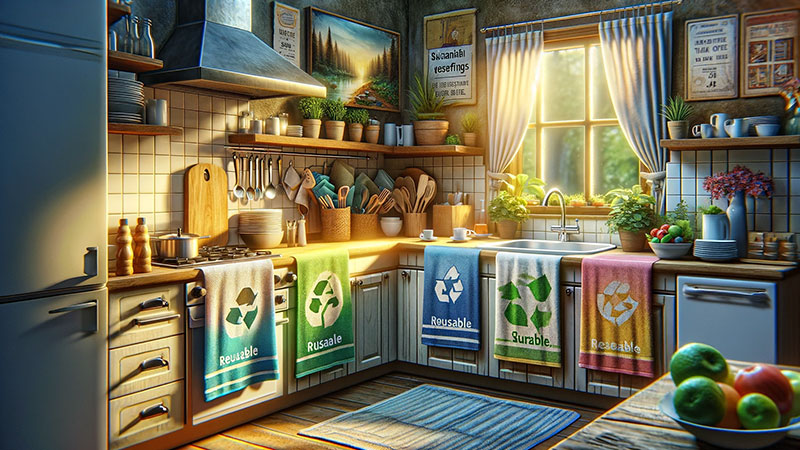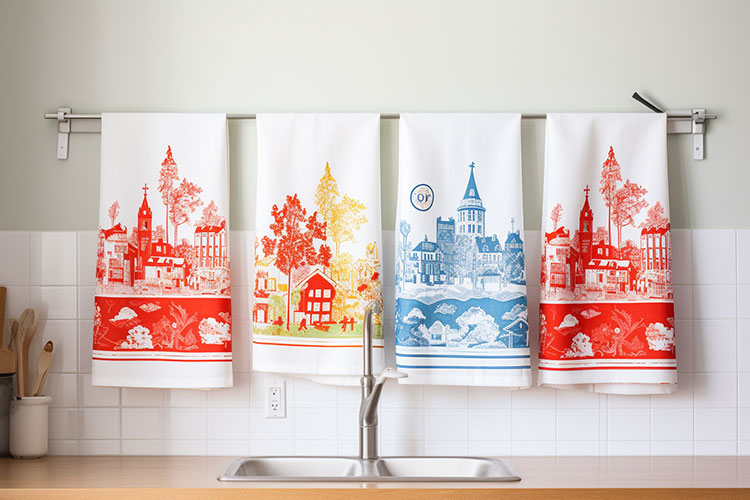In today’s world, environmental consciousness is more crucial than ever. In our daily lives, even small changes can make a significant impact. One such change is opting for tea towels over disposable paper towels, reducing waste and easing our environmental footprint.

Environmental Cost of Paper Towels:
The production of disposable paper towels involves extensive deforestation and water consumption. The energy used in their production and the waste generated post-use contribute to environmental degradation. Over time, these practices exert considerable pressure on our natural environment.

Sustainable Advantages of Tea Towels:
In contrast, tea towels offer a sustainable alternative. Their reusability reduces the demand for raw materials, energy consumption, and waste production. The durability of tea towels means they can be used over a long period, lessening the need for frequent replacements.

Practicality and Aesthetics of Tea Towels:
Beyond their environmental benefits, tea towels are incredibly versatile in everyday use. They are not just for kitchen cleaning but also serve as stylish table accessories. The array of designs and colors available caters to diverse consumer preferences.

Customization Services:
To enhance the appeal of tea towels, brands like BLANC offer customized tea towel services. This not only provides consumers with unique designs but also promotes the use of tea towels, encouraging more people to adopt an eco-friendlier lifestyle.

Eco-friendly and Low-carbon Actions in Everyday Life:
To further support an eco-friendly lifestyle, consider incorporating these simple yet effective actions into your daily routine:
1. Prioritize Public Transport: Opt for buses, trains, or subways instead of personal vehicles to reduce carbon emissions.
2. Use Canvas Bags for Shopping: Replace single-use plastic bags with reusable canvas bags to minimize waste.
3. Opt for Electric Vehicles: Consider using electric vehicles to decrease reliance on fossil fuels.
4. Switch to LED Light Bulbs: LED bulbs are more energy-efficient and have a longer lifespan than traditional bulbs.
5. Conserve Water: Adopt practices like shorter showers and fixing leaky faucets to save water.
6. Choose Renewable Energy Sources: Where possible, use renewable energy sources like solar or wind power.
7. Participate in Tree Planting: Engage in or support tree-planting initiatives to enhance green cover.
8. Reduce Paper Usage: Embrace digital alternatives and minimize paper use in daily activities.
9. Support Eco-conscious Products and Brands: Choose products and brands that prioritize environmental sustainability.
10. Purchase Second-hand Goods: Buy used items when possible to support recycling and reduce waste.

These small lifestyle changes enable each of us to make substantial contributions to environmental protection. Let’s take action together, using these small changes to create a better future. We welcome you to share your experiences and suggestions for an eco-friendly life, working together to make our planet greener and more sustainable.

